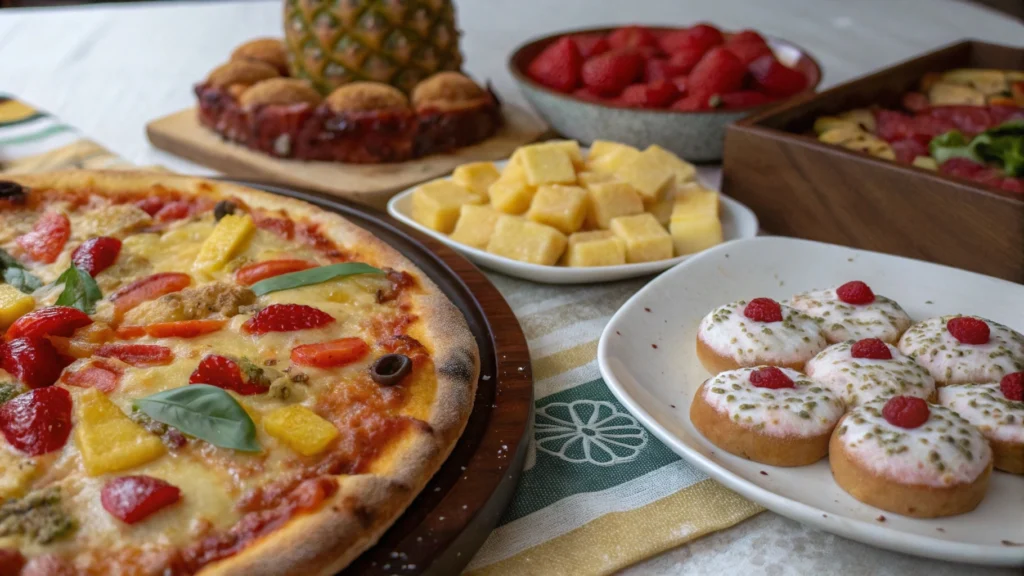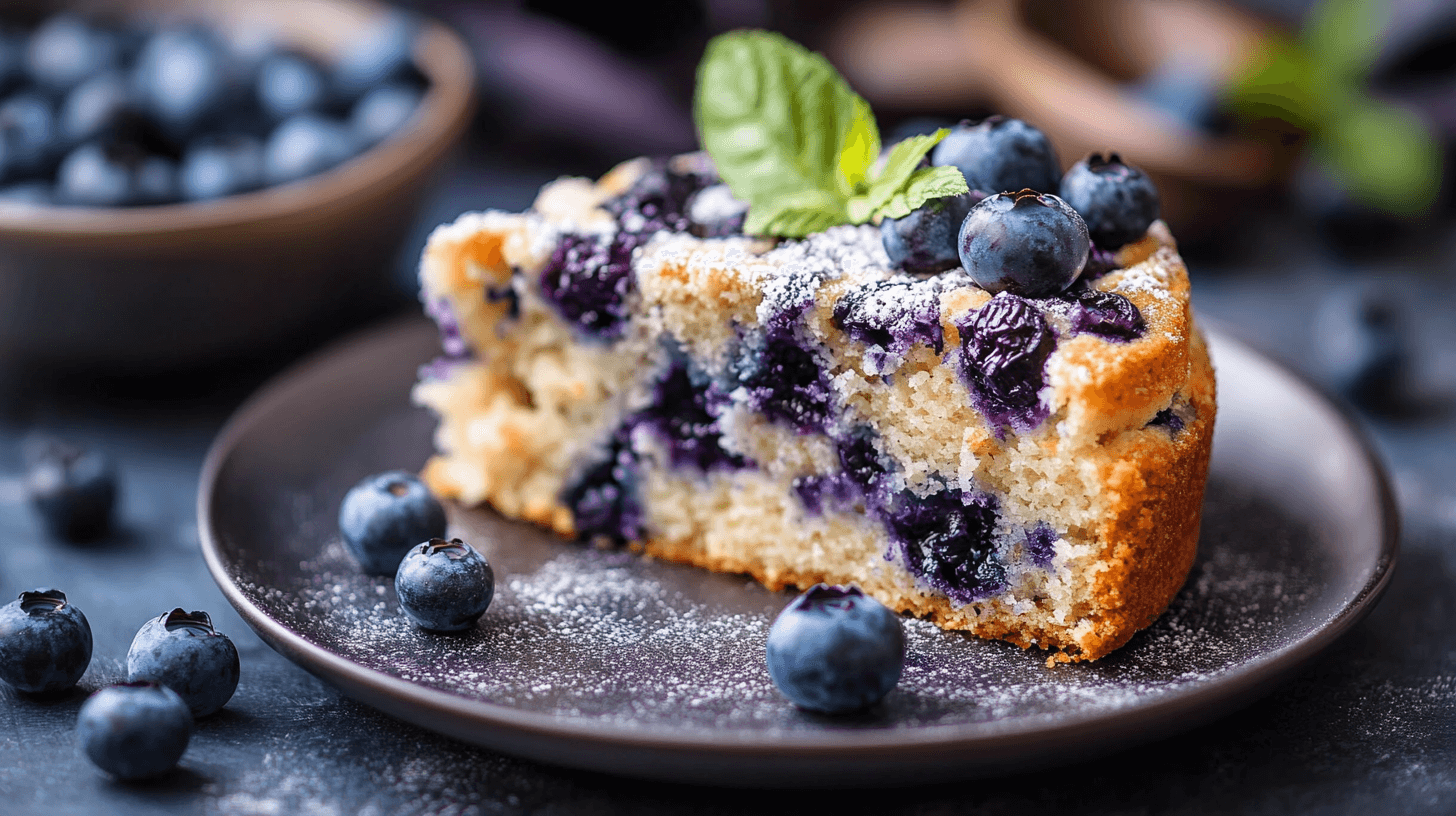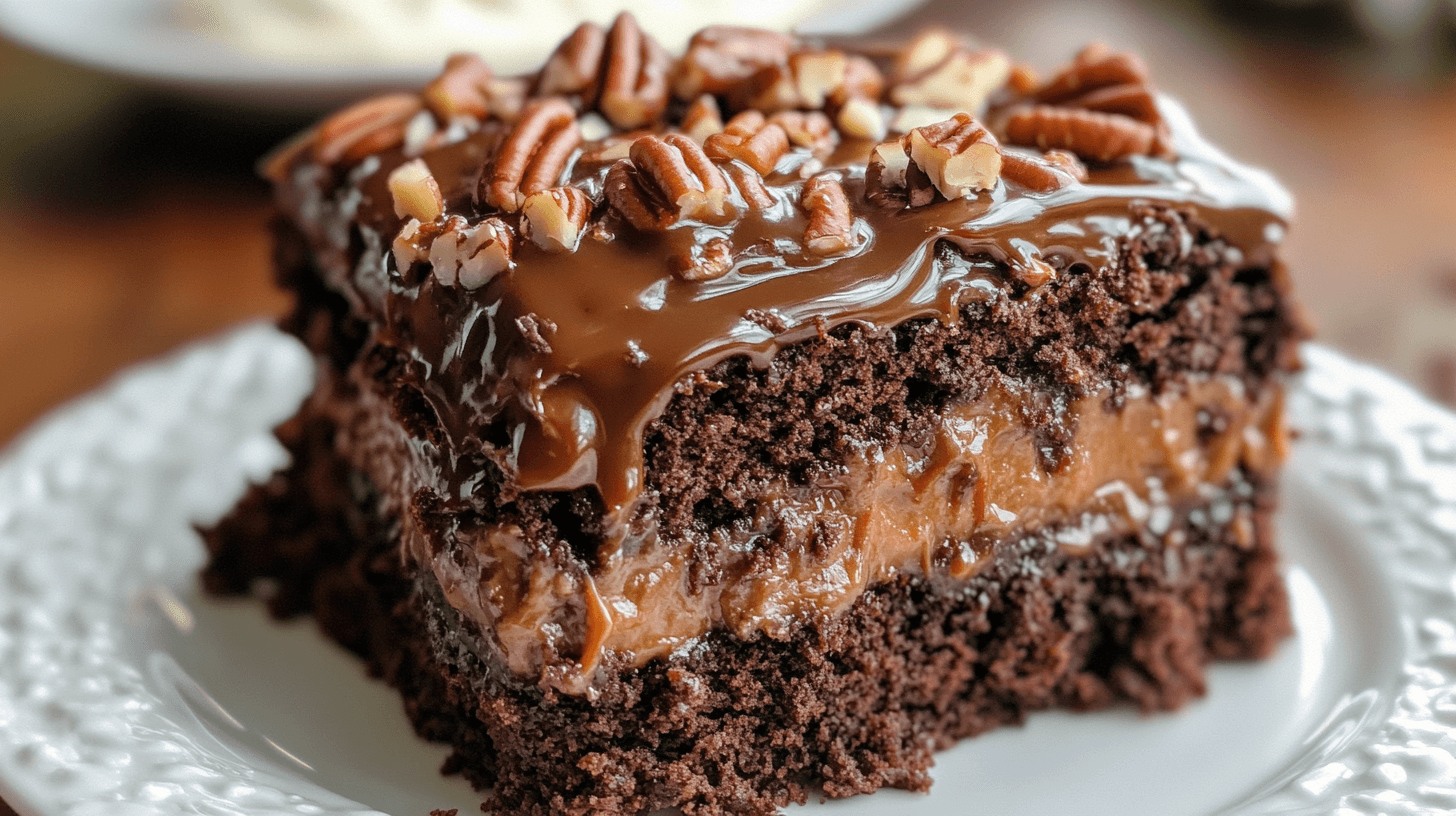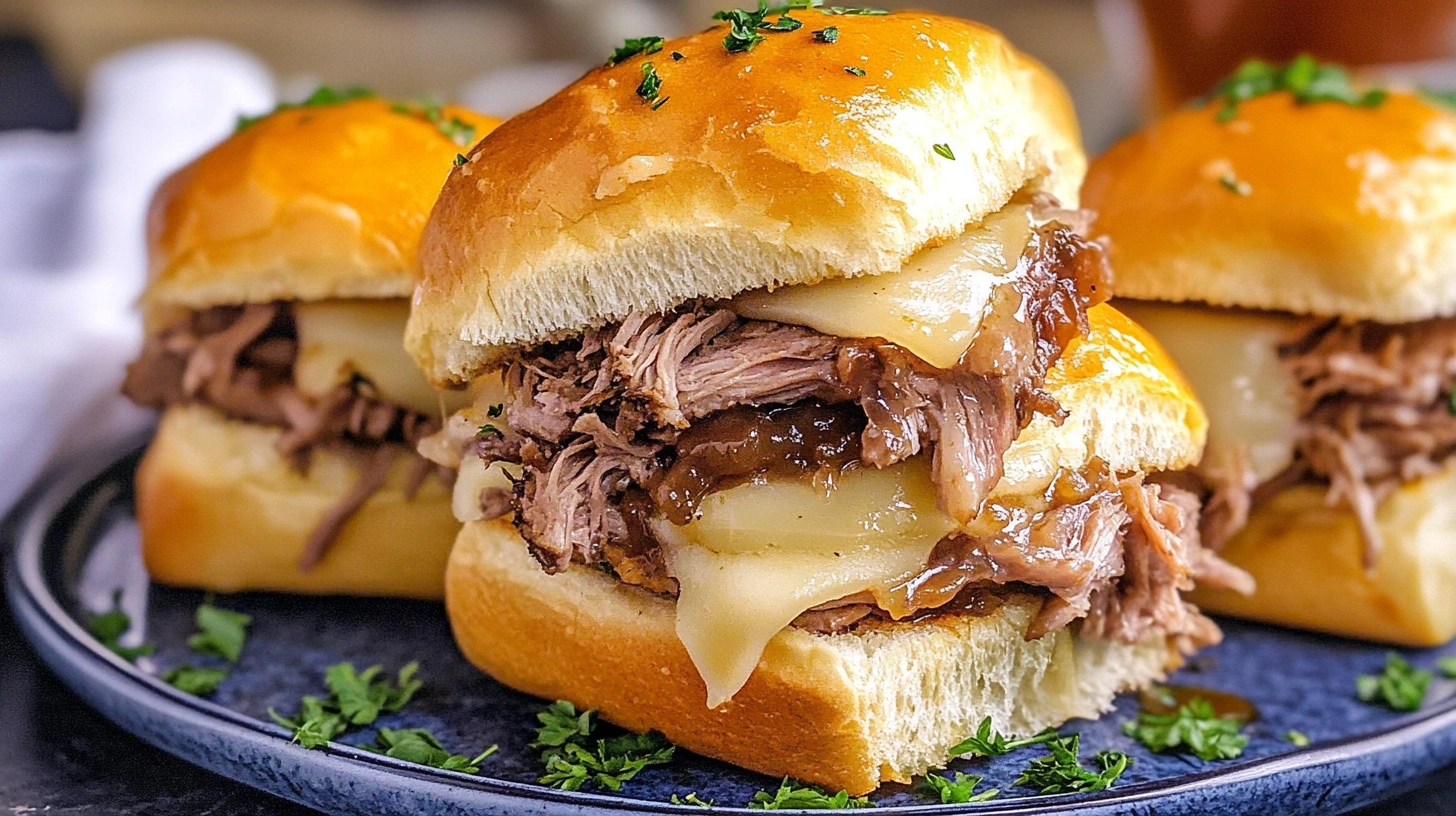Do Italians Make Sweet Pizza is famous for its rich traditions, going beyond just savory dishes. It offers a world of sweet treats that are truly delightful. Exploring Italian desserts, you’ll find a variety of flavors that surprise and please.
In Rome’s cobblestone streets to Abruzzo’s coast, dessert pizza is a special part of Italian food. Your adventure through Italian dolce pizza will show you amazing and tasty variations. These desserts challenge what you think desserts should be.
Italian sweets showcase the creativity and heritage of each region. Whether you love food or just want to try something new, Italian desserts are a journey you won’t forget.
Table of Contents
Understanding Italian Dessert Culture
Dive into the rich world of Italian culinary traditions. Desserts are more than sweet treats; they celebrate regional identity and cultural heritage. Italian dessert culture is a journey through flavors, techniques, and family recipes passed down through generations.
Sweets in Italian cuisine are more than just treats. Each region has its own dessert scene, showing off local ingredients, historical influences, and cultural food preferences. From Sicily’s creamy gelatos to Lombardy’s delicate pastries, desserts share stories of local pride and culinary innovation.
Regional Sweet Specialties
Italian desserts show amazing diversity across regions:
- Sicily: Cannoli with ricotta cheese and candied fruits
- Veneto: Tiramisu with coffee and mascarpone
- Naples: Pastiera, a traditional Easter cake
- Sardinia: Seadas, a unique cheese and honey pastry
Traditional vs Modern Interpretations
Modern Italian chefs respect old recipes but also innovate. They mix traditional techniques with new ideas, creating exciting flavors that respect their culinary heritage.
“In Italy, a dessert is not just food – it’s a piece of our history and culture on a plate.” – Italian Pastry Chef
These sweet creations show the dynamic nature of Italian cuisine. They balance tradition with creative culinary expression.
La Pizza Dolce: The Traditional Sweet Pizza of Abruzzo

Explore the world of pizza dolce, a sweet treat from Abruzzo. It’s not like the pizza you know. Instead, it’s a layered cake that shows Italian creativity.
In Italy, pizza can vary by region, and la pizza dolce is a standout. It comes from Abruzzo, celebrating local ingredients and cooking methods.
“La pizza dolce is more than a dessert – it’s a cultural experience that connects generations,” says local Abruzzo chef Maria Rossi.
- Ingredients typically include:
- Sponge cake layers
- Rich cream fillings
- Alchermes liqueur
When you ask if Italians make sweet pizza, la pizza dolce says yes. It’s a big part of celebrations like weddings and holidays. Making it involves many family members, strengthening bonds and keeping traditions alive.
The cake’s complexity shows Abruzzo’s rich food heritage. Each slice shares a story of local ingredients, careful making, and Italy’s love for food.
Do Italians Make Sweet Pizza?
Italian culinary traditions are rich and diverse, with a big focus on desserts. Many wonder do italians make sweet pizza?. The answer is not a simple yes or no.

Sweet pizza is a new twist on traditional Italian food. It’s different from the usual savory pizzas. These desserts mix pizza-making skills with sweet toppings for a unique taste.
Historical Perspective on Sweet Pizza
The story of sweet pizza starts in Italy’s regions. In Abruzzo, people have made pizza dolce for years. It’s a sweet pizza that breaks the mold of what pizza should be.
- Regional variations play a big role in sweet pizza’s growth
- Traditional recipes use simple, local ingredients
- Family recipes are passed down through generations
Modern Interpretations
Today, chefs are making sweet pizzas with new ideas. Nutella pizza is a hit, with a thin crust and Nutella on top.
| Sweet Pizza Variation | Key Ingredients | Baking Temperature |
|---|---|---|
| Nutella Pizza | Homemade dough, Nutella, powdered sugar | 500°F |
| Fruit-Topped Sweet Pizza | Fresh berries, mascarpone, honey | 475°F |
Cultural Significance
“Sweet pizza shows the creativity and adaptability of Italian cuisine” – Chef Mario Rossi
Sweet pizza shows how Italian cooking is always changing. It’s a mix of old ways and new ideas. This makes for exciting dining experiences that respect tradition and innovation.
Classic Italian Desserts: Beyond Pizza
Exploring italian cuisine reveals a world of sweet delights beyond dolce pizza. Italian culinary traditions offer a wide range of desserts. These treats excite the taste buds and celebrate regional creativity.
Some of the most beloved Italian desserts include:
- Tiramisu: A decadent dessert from the Veneto region, with coffee-soaked ladyfingers and creamy mascarpone
- Panna Cotta: A silky custard that melts in your mouth, known for its simple yet elegant preparation
- Gelato: Florence’s frozen masterpiece, denser and more flavorful than traditional ice cream
- Cannoli: A Sicilian specialty with crispy shells filled with sweet ricotta cream
Each region of Italy adds its own twist to desserts. From the ricotta e pera torta in Campania to the maritozzo alla panna in Lazio, these sweets show Italy’s diverse culinary landscape.
“In Italy, dessert is not just food—it’s a celebration of life’s sweet moments.”
Regional variations highlight the depth of italian culinary traditions. With 20 distinct regions, each offers its own special dessert. This ensures a never-ending journey of sweet discoveries.
Tiramisu and Panna Cotta: Italy’s Most Famous Desserts
Exploring Italian cuisine, we find two desserts that are true icons: tiramisu and panna cotta. These treats show the best of Italian dessert making. They highlight the rich food culture of Italy.

Tiramisu, known as “pick me up” in Italian, is a beloved classic. It’s made with ladyfingers soaked in espresso and a creamy mascarpone mix. The top is dusted with cocoa powder for a final touch.
Traditional Preparation Methods
- Tiramisu requires precisely layered ingredients
- Mascarpone cheese must be whipped to a smooth consistency
- Ladyfingers are carefully soaked in strong espresso
- Cocoa powder provides the final elegant touch
Regional Variations
Italy’s regions add their own twist to these desserts. Some tiramisus might have a local liqueur. Panna cotta can have regional fruits or unique flavors.
Modern Adaptations
Today, chefs are making these desserts in new ways. You might find tiramisu or panna cotta without alcohol. They might have flavors like lavender or matcha. These updates keep Italian dessert culture alive for new fans.
“Desserts are the poetry of Italian cuisine – simple, elegant, and deeply meaningful.” – Italian Culinary Expert
Whether you love desserts or just enjoy trying new foods, tiramisu and panna cotta are a must-try. Each bite tells a story of tradition and innovation. It’s a journey of joy through Italy’s sweet treats.
Gelato and Italian Ice: Frozen Delights
Gelato is a key part of Italian cuisine, loved for its rich history and taste. It’s a frozen dessert that shows Italy’s love for sweets. Unlike ice cream, gelato offers a special taste experience, thanks to Italy’s long tradition of making it.
The story of gelato is long and interesting. Over 55% of gelato in Italy is made by hand, keeping it unique. It started in Sicily, ancient Rome, and Egypt. The first ice cream machine was made in 1686 by Francesco Procopio dei Coltelli.”Italians Make Sweet Pizza”
“Gelato is not just a dessert, it’s a cultural expression of Italian creativity and passion.”
What makes gelato stand out are its unique features:
- Lower fat content than ice cream
- Denser and more flavorful
- Made with more milk and less cream
- Churned slower for a smoother texture
Gelato flavors show Italy’s love for sweets and local tastes. You’ll find favorites like stracciatella and pistachio, along with new flavors like lavender honey and limoncello sorbet. People enjoy gelato all year, showing it’s more than just a cold treat.
Gelato has traveled from Sicily to Paris and New York, becoming a symbol of Italian desserts worldwide. Its story shows how a simple treat can mean so much more than just a sweet snack.”Italians Make Sweet Pizza”
Italian Cookie Varieties and Sweet Breads
Explore the world of Italian cookies and sweet breads. They are more than treats; they open a window to regional traditions and family heritage.
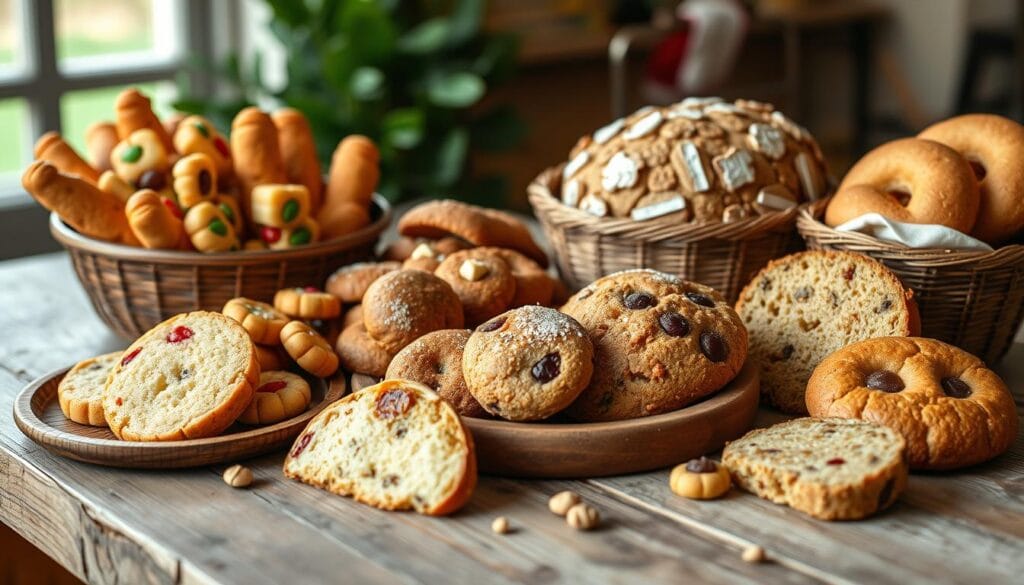
Italian cookies are incredibly diverse. They reflect the rich tapestry of regional pizza variations and local cooking techniques. Each region adds its own flavor and character to these treats.”Italians Make Sweet Pizza”
Biscotti and Traditional Cookies
Biscotti are the most famous Italian cookie. These twice-baked treats are great for dipping in coffee or wine. Some classic types include:
- Rainbow cookies with vibrant layers
- Brutti ma buoni (ugly but good) cookies
- Almond-studded traditional biscotti
Holiday Sweet Breads
During holidays, Italian sweets turn into amazing sweet breads. Panettone and colomba are highlights of Christmas and Easter. They bring families together with their rich, aromatic flavors.
Regional Specialties
Every Italian region has its own cookie and bread traditions. Tuscan cantuccini offer a crunchy almond experience. Sicilian cannoli show the island’s culinary creativity.
“In Italy, a cookie is never just a cookie – it’s a story, a memory, a piece of culture.”
Exploring Italian cuisine, these cookies and sweet breads are more than desserts. They are stories of tradition, family, and regional pride.
The Art of Italian Pastry Making-Italians Make Sweet Pizza
Italian pastry making is a deep culinary art. It mixes old techniques with top-notch ingredients. This journey shows you the detailed skills passed down through generations. These skills turn simple parts into beautiful desserts that show off Italian culinary traditions.
To master Italian pastry, you need to know some key techniques. These techniques are what make Italian desserts special. Skilled chefs focus on being precise and using the best ingredients. They make treats that celebrate the diversity of different regions.”Italians Make Sweet Pizza”
- Sfoglia: Laminated dough technique for creating flaky layers
- Zuccheratura: Delicate sugar coating method
- Texture balancing: Harmonizing flavors and consistencies
Regional specialties are very important in Italian pastry making. Each area has its own special desserts. These desserts show off local ingredients and cultural heritage.
| Region | Signature Pastry | Key Ingredient |
|---|---|---|
| Sicily | Cannoli | Ricotta cheese |
| Tuscany | Semifreddo | Almonds |
| Veneto | Tiramisu | Mascarpone |
“In Italian pastry, every ingredient tells a story of tradition and passion.” – Italian Pastry Master
Italian chefs are dedicated to their craft, whether making dessert pizzas or traditional pastries. Their hard work makes sure each bite connects you to a rich story. This story is deeply rooted in cultural heritage.”Italians Make Sweet Pizza”
Modern Italian Dessert Innovations-Italians Make Sweet Pizza
The world of Italian desserts is always changing. Chefs mix old techniques with new ideas. They’re making classic recipes fresh again and trying out new flavors.
Fusion Desserts: A Culinary Adventure
Italian pastry chefs are making dessert pizzas that defy tradition. They use unexpected ingredients and methods. This makes for unique and exciting sweet treats.
- Nutella and mascarpone base combinations
- Exotic fruit sweet toppings
- Artisanal chocolate drizzles
- Unexpected spice infusions
Contemporary Sweet Pizza Variations-Italians make sweet pizza
Pizza innovations are changing the Italian dessert scene. Chefs are trying new sweet toppings. This adds a fresh twist to dessert pizzas.”Italians Make Sweet Pizza”
“Creativity is the secret ingredient in modern Italian dessert making” – Chef Marco Rossi
Artisanal Creations: Elevating Sweet Experiences-Italians make sweet pizza
Artisan pastry makers use top-quality, local ingredients. They create unique dessert pizzas. These show off regional flavors and new techniques.”Italians Make Sweet Pizza”
From Piedmont’s hills to Sicily’s coast, Italian desserts keep surprising and pleasing everyone.
Italians Make Sweet Pizza Alternatives in Italian Cuisine
Exploring do italians make sweet pizza? leads to amazing alternatives that show Italian dessert pizza traditions. Italian culinary traditions offer sweet treats that are more than just pizza.
Italians have come up with creative desserts that are just as satisfying as sweet pizza. These options highlight the detailed approach to sweets in Italian cooking:
- Focaccia dolce: A sweet flatbread variation
- Crostata: A rustic Italian tart with fruit or chocolate
- Zeppole: Soft pastry balls often topped with sweet ingredients
- Sfogliatelle: Flaky pastries with rich sweet fillings
Each dessert shows the Italian way of balancing sweetness. They prove why traditional sweet pizza isn’t common in Italy.
“In Italian cuisine, desserts are an art form of subtle flavors and delicate textures.” – Italian Culinary Expert
| Dessert Alternative | Key Characteristics | Origin Region |
|---|---|---|
| Focaccia dolce | Sweet flatbread with fruit or chocolate | Northern Italy |
| Crostata | Rustic fruit tart with crisp crust | Central Italy |
| Zeppole | Soft pastry balls with sweet toppings | Southern Italy |
These desserts, while not pizza, are a great way to explore Italian sweet traditions. They’ll satisfy your desire for something unique.
The Role of Nutella in Modern Italians Make Sweet Pizza
Nutella has changed the world of Italian desserts, bringing new ideas for sweet toppings and pizza. This hazelnut-cocoa spread is loved by many, mixing old Italian baking with new tastes.”Italians Make Sweet Pizza”
Nutella is more than just a spread. It’s used in many creative ways by chefs and home cooks:
- Nutella pizza: A modern twist on classic Italian desserts
- Stuffed pastries featuring Nutella filling
- Gelato incorporating Nutella swirls
- Nutella-infused crostata (traditional Italian tart)
Across Italy, Nutella is welcomed as a new ingredient. Bakers from north to south use it to make new desserts. These desserts mix old traditions with new tastes.
“Nutella represents the perfect blend of Italian culinary creativity and global food trends” – Italian Culinary Institute
Young people love Nutella for making old desserts new again. Nutella pizza is a hit, with its crispy crust and chocolate-hazelnut taste.
| Dessert Type | Nutella Integration | Popularity |
|---|---|---|
| Traditional Crostata | Filling replacement | High |
| Pizza Dolce | Sweet topping | Very High |
| Gelato | Flavor mix-in | Medium |
By using Nutella, Italian desserts show they can grow while staying true to their roots. Nutella turns old recipes into new, exciting dishes.”Italians Make Sweet Pizza”
Conclusion
Exploring Italian cuisine has shown us that there’s more to dessert than just dolce pizza. Italian traditions celebrate sweetness with deep flavors and respect for ingredients. From Abruzzo’s specialties to modern dessert pizzas, Italy delights food lovers everywhere.
Italian desserts are all about simplicity and quality. Enjoying a tiramisu or trying new dessert pizzas, you’ll see the focus on fresh ingredients and real flavors. This journey through Italian sweets highlights a culture that values creativity and tradition.
Italian desserts are more than food; they’re a celebration of culture, history, and innovation. From gelato to dessert pizza, Italian cuisine keeps evolving while staying true to its roots. Each bite of Italian sweets takes you to Italy’s sunny kitchens and lively streets.
FAQ
Are there sweet pizzas in Italy?
Yes, sweet pizzas do exist in Italy, though they are not as common as savory options. These desserts often feature toppings like Nutella, fresh fruits, or ricotta cheese. Sweet pizzas are usually enjoyed as a treat rather than a main meal and can be found in some pizzerias or bakeries.
What is authentic Italian pizza like?
Authentic Italian pizza is all about simplicity and quality. The crust is thin and often slightly charred, made from high-quality flour. Traditional toppings include fresh tomato sauce, mozzarella cheese, fresh basil, and a drizzle of olive oil. Italian pizzas are typically cooked in wood-fired ovens, giving them a unique, smoky flavor.
What type of pizza is most common in Italy?
The most common type of pizza in Italy is Pizza Margherita, a classic topped with tomato sauce, mozzarella, and fresh basil, representing the colors of the Italian flag. Another popular variety is Pizza Marinara, which is topped with tomato, garlic, oregano, and olive oil, without cheese.
Why does pizza taste different in Italy?
Pizza tastes different in Italy due to the emphasis on fresh, local ingredients and traditional preparation methods. The flour, tomatoes, cheese, and olive oil used are often sourced locally and prepared with minimal processing. Additionally, the use of wood-fired ovens imparts a distinct flavor and texture that is hard to replicate elsewhere.
“If you’ve ever wondered, ‘Why are some pizza sauces sweet?’, it’s often due to added sugar or naturally sweet tomatoes. Discover more about this and other delicious recipes in our article!”

